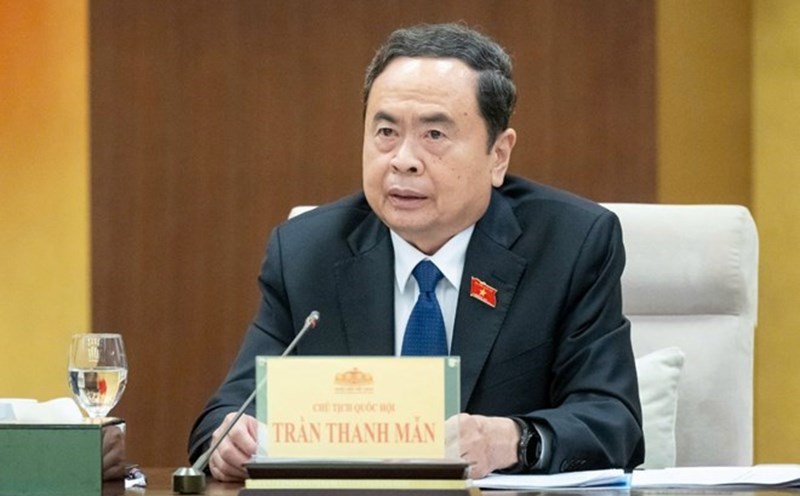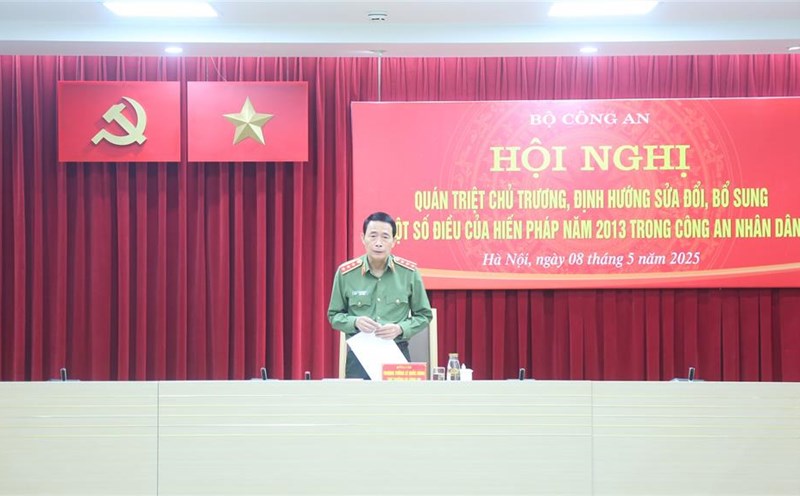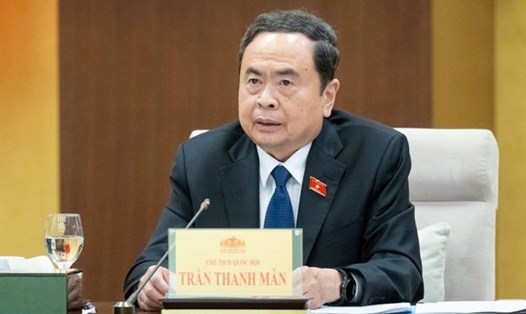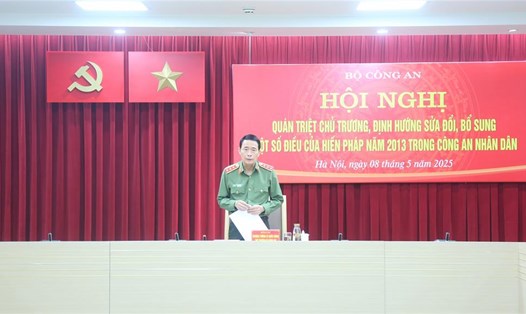Institutionalizing the Party's policies and the people's expectations
According to our country's constitutional history, since the founding of the Democratic Republic of Vietnam, our country has had 5 constitutations, which are the Constitution of 1946 and the Constitution of 1959, the Constitution of 1980, the Constitution of 1992, the Constitution of 2013.
These constitutments were all issued in certain historical cases and times to institutionalize the revolutionary guidelines of the Communist Party of Vietnam for each stage of the country's development.
From May 6, the Draft Resolution amending and supplementing a number of articles of the 2013 Constitution was announced and widely consulted by people across the country. According to Lao Dong reporter, as of 12:30 on May 9, there were nearly 48,000 views and more than 22,000 comments via the VNeID application.
The content related to contributing opinions on amending and supplementing the Constitution has also received much attention.
Speaking with Lao Dong, Mr. Nguyen Tuc - Member of the Presidium, Chairman of the Advisory Council on Culture - Society, Central Committee of the Vietnam Fatherland Front - emphasized that although only 8/120 articles of the Constitution have been amended, this amendment and supplement have important meanings.
"The amendment of this Constitution is very important in the revolution of arranging, streamlining the apparatus and organizing the two -level local government. The amendment of this Constitution also aims to institutionalize the Party's policies, the people's expectations for the revolution to arrange and streamline the apparatus. This is profound political and legal significance so that we have the most important legal basis in the reality of the Party."
A notable point is the amendment of Articles 9 and 10 in the direction of more clearly establishing the role of the Fatherland Front and socio-political organizations in the political system.
According to Mr. Nguyen Tuc, this amendment to clarify the core role of the Vietnam Fatherland Front, emphasizing the position as the center organization of the great unity bloc, ensuring the legal basis for the organization of the Vietnamese Fatherland Front, socio -political organizations, proposing amendments and supplements to the location, function, organization and operation principle of the Vietnam Fatherland Front, and the new organization of the Vietnamese Fatherland Front The socio -political organization of the Vietnam Fatherland Front.
Optimizing resources, improving management efficiency and serving people better
Lawyer Nguyen Van Hau - Deputy Chairman of Ho Chi Minh City Bar Association - said that the policy of streamlining the apparatus, merging provinces and cities should implement synchronously with the perfection of the legal system, in which the focus is to amend and supplement the Constitution. A constitution in accordance with social reality will be the foundation for continuing to adjust the laws related to socio -political organizations and organizational structure at all levels.
CS Hau said that one of the contents that needs to be consulted by experts and people is the Law on the Vietnam Fatherland Front. In addition, it is necessary to amend regulations related to socio-political organizations and organizations assigned by the Party and the State to remove obstacles in the implementation process, avoiding affecting operational efficiency.
Another important content is to review and amend legal regulations on the organization of local government. As a subject directly affected by administrative activities, people can clearly reflect the shortcomings and propose practical solutions. Listening to and institutionalizing these opinions will help the local government apparatus operate more effectively, ensuring transparency, fairness and better service to the people.
Dr. Tran Quang Thang - Director of the Ho Chi Minh City Institute of Economics and Management - agreed with the amendment and supplementation of the 2013 Constitution, and at the same time recommended that the National Assembly pay attention to two key points. That is:
Firstly, the amendment of the Constitution must be consistent with the amendment of related laws to ensure unity in the organization of the State apparatus; at the same time, it is necessary to establish an effective power supervision mechanism when giving more authority to the provincial level.
Second, removing the district level requires restructuring the management system, clearly defining the functions between the provincial and commune levels to avoid overlap, and at the same time not letting the provincial level be overloaded because it overwhelms too many tasks.
Dr. Tran Quang Thang commented that switching to the model of local government at 2 levels (province - commune) is necessary to streamline the apparatus, optimize resources, improve management efficiency and serve people better. This is not only an organizational change, but also a breakthrough reform in local governance thinking, towards a modern, transparent, nearly popular administration and quick response to reality.
On 5.5.2025, the XV National Assembly discussed and approved Resolution No. 194/2025/QH15 with 452 deputies of the National Assembly voting to agree (accounting for 100% of the representatives present and 94.56% of the total number of National Assembly deputies). Accordingly, the National Assembly decided to consider amending and supplementing a number of articles of the Constitution of the Socialist Republic of Vietnam in 2013 to implement the policy of arranging and streamlining the organizational structure of the political system with the revision that focused on the provisions of the 2013 Constitution on the Vietnam Fatherland Front, socio -political organizations and the decomposition of administrative units, local government organizations. Tran Vuong











